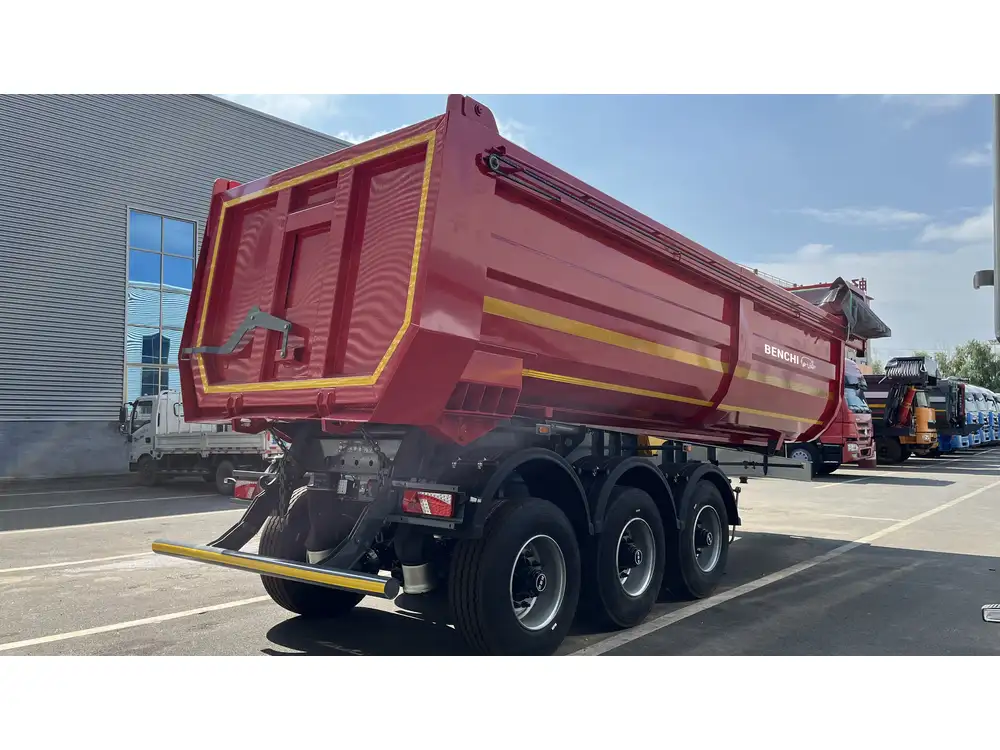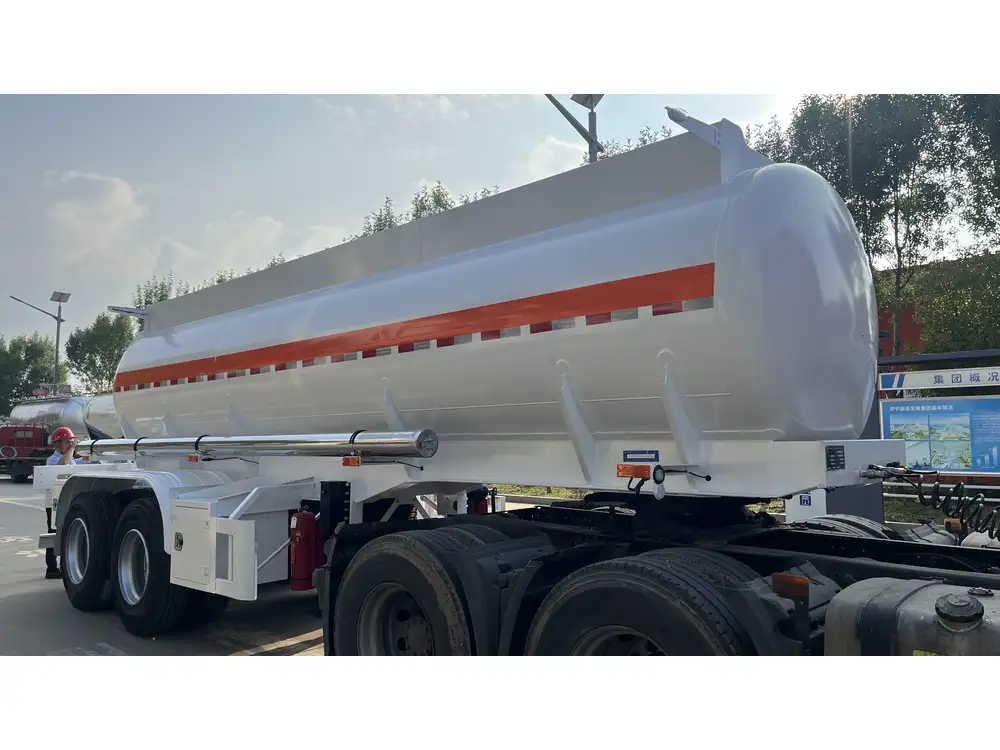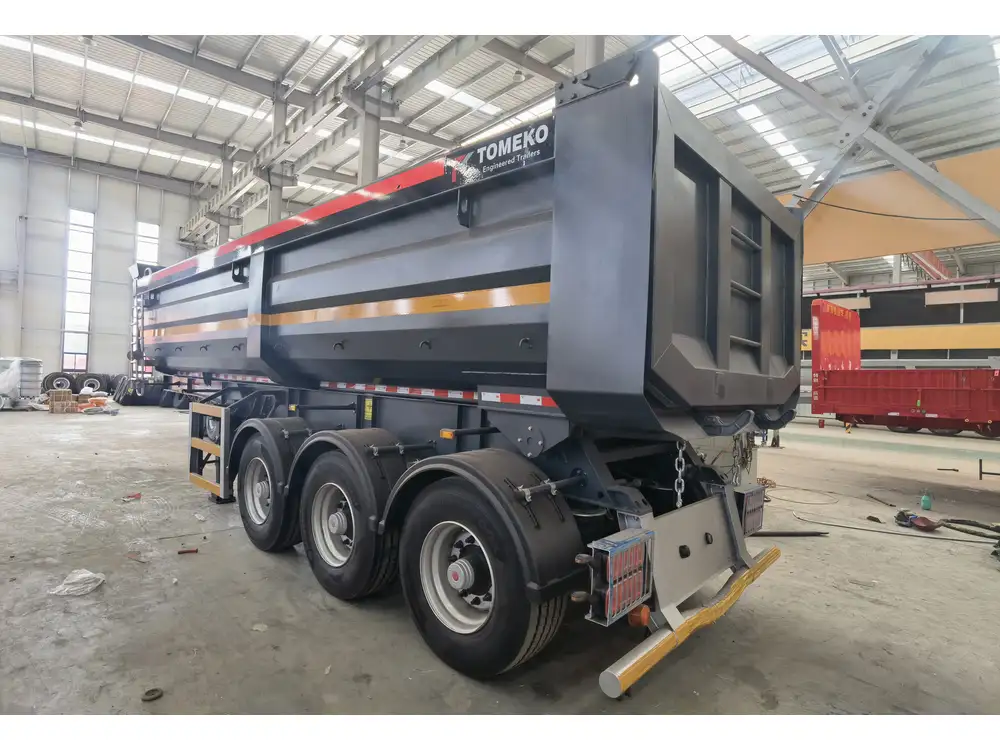Navigating the world of commercial driving can be intricate, especially when it comes to understanding the specific requirements for operating different types of vehicles. One common area of confusion is whether a Commercial Driver’s License (CDL) is necessary to drive a dump trailer. In this detailed guide, we will explore the nuances of CDL requirements in relation to dump trailers, highlighting key factors such as vehicle classification, regulations, and exemptions.
Understanding Dump Trailers: What Are They?
Dump trailers are versatile pieces of equipment used largely in construction, landscaping, and waste removal industries. Their primary function is to transport various materials, including soil, gravel, and debris, to and from job sites. The ability to unload cargo by tipping the trailer bed at the push of a button or lever adds to their efficiency.
Types of Dump Trailers
| Type | Description | Common Uses |
|---|---|---|
| Standard Dump | A trailer that can carry heavy loads and unload them by tipping. | Construction, landscaping |
| Side Dump | Designed to unload materials to the side rather than the rear. | Highway maintenance, large loads |
| Roll-Off | Uses a frame and a detachable container that can be exchanged out. | Waste management, recycling |

Vehicle Classification
Dump trailers vary significantly in size and weight. Understanding these classifications is crucial, as they dictate whether a CDL is required to operate them.
- Gross Vehicle Weight Rating (GVWR): This is the maximum weight a vehicle can safely carry, including its own weight plus the weight of cargo.
- Trailer Weight: The empty weight of the trailer itself must be considered when determining if a CDL is necessary.
General CDL Requirements
The Federal Motor Carrier Safety Administration (FMCSA) outlines the conditions under which a CDL is required. A CDL is necessary when:
- The vehicle(s) being driven has a combined weight exceeding 26,001 pounds, along with a trailer weighing more than 10,000 pounds.
- The vehicle is designed to transport 16 or more occupants (including the driver).
- The vehicle is transporting hazardous materials.
Do You Need a CDL for a Dump Trailer?

When a CDL is Required
Operating a dump trailer often necessitates a CDL, particularly if:
- Weight Thresholds Are Exceeded: If the combined weight of the truck and dump trailer exceeds 26,001 pounds, a CDL is mandated.
- Commercial Use: If the dump trailer is used for commercial purposes, such as for a business or as part of a service offering, a CDL is needed.
When a CDL is Not Required
Conversely, there are scenarios in which a CDL may not be required:
- Light-Duty Usage: If the combined weight is below the 26,001-pound threshold and the dump trailer is used for personal or recreational purposes, a standard driver’s license may suffice.
- Farm Vehicles: In some jurisdictions, farm-related activities may exempt the driver from needing a CDL, provided the vehicle is operated within the confines of the farm.
State-Specific Regulations
The requirements for driving a dump trailer can vary significantly from state to state. Some states might have additional regulations and classifications that impose stricter requirements.
| State | CDL Requirement | Notes |
|---|---|---|
| California | CDL required for trailers over 10,000 lbs combined | Must pass both written and driving tests. |
| Texas | CDL required over 26,000 lbs combined | Hours of service regulations apply. |
| New York | CDL required when operating for hire | May have local exemptions. |
Make sure to consult your local Department of Motor Vehicles (DMV) or equivalent entity for specific requirements in your state, as this can greatly impact your decision and compliance obligations.

Preparing for the CDL Test
If you determine a CDL is necessary for your operation, preparation is key. Below are some steps to ensure a successful outcome.
Study the CDL Manual: Each state provides a CDL manual detailing the requirements, regulations, and necessary knowledge for test-takers. This is an invaluable resource.
Take a Pre-Test: Before scheduling your official CDL test, consider taking a practice exam to gauge your understanding and readiness.
Driver Training Programs: Enrolling in a licensed truck driving school can enhance your driving skills and familiarize you with the operational controls of heavy vehicles.
Hours of Practice: Spend adequate time behind the wheel with a coach or supervisor. Practical experience is crucial.
Maintenance and Safety Considerations
Owning and operating a dump trailer involves more than just understanding CDL requirements. Regular maintenance and safety checks are essential to ensure both the driver’s safety and the longevity of the trailer.
Daily Maintenance Checklist
| Component | Checks to Perform |
|---|---|
| Tires | Check for proper inflation and tread wear. |
| Brakes | Ensure brakes are functioning effectively and not worn out. |
| Lights | Verify all lights are operational, including turn signals and taillights. |
| Trailer Bed | Inspect for damage and ensure the lifting mechanism is working. |

Safety Protocols
- Weight Distribution: Ensure that loads are evenly distributed to avoid dangerous imbalances.
- Loading Practices: Adhere to proper loading protocols to minimize the risk of spills or accidents.
- Driver Training: Invest in safety training for all operators to mitigate risks.
Conclusion: Navigating Your Niche Safely and Legally
Understanding whether you need a CDL to drive a dump trailer is pivotal for anyone in the construction or landscaping industries. It is clear that while the necessity for a CDL often correlates with weight thresholds and commercial use, local laws can further complicate the requirement landscape.
Before operating a dump trailer, ample research, and preparation are imperative to adhere to state regulations and ensure safety on the road. Proper training, maintenance, and knowledge of legal obligations empower drivers not only to operate effectively but also to elevate operational standards within their respective industries.
By equipping yourself with knowledge, you not only comply with legal standards but also foster a culture of safety and professionalism—qualities that are essential for thriving in today’s competitive market.



